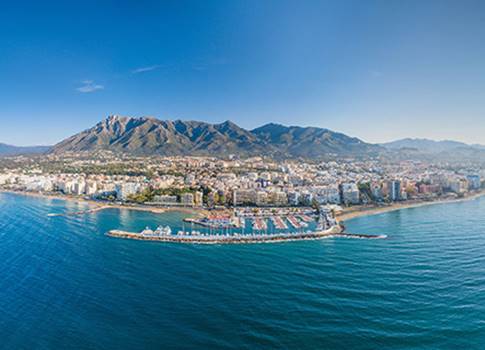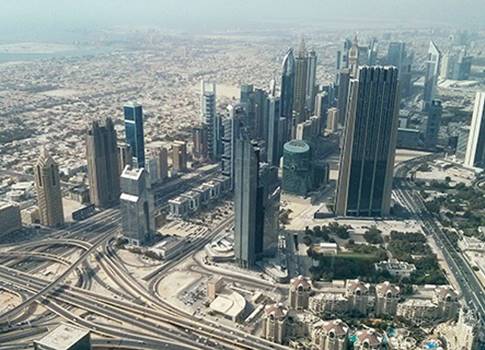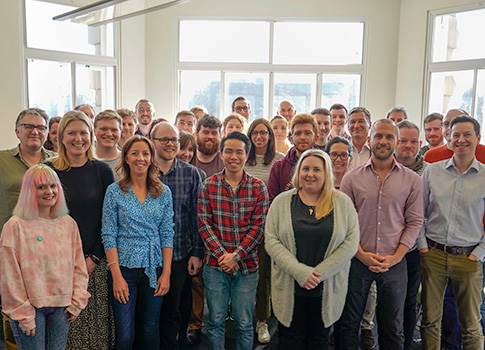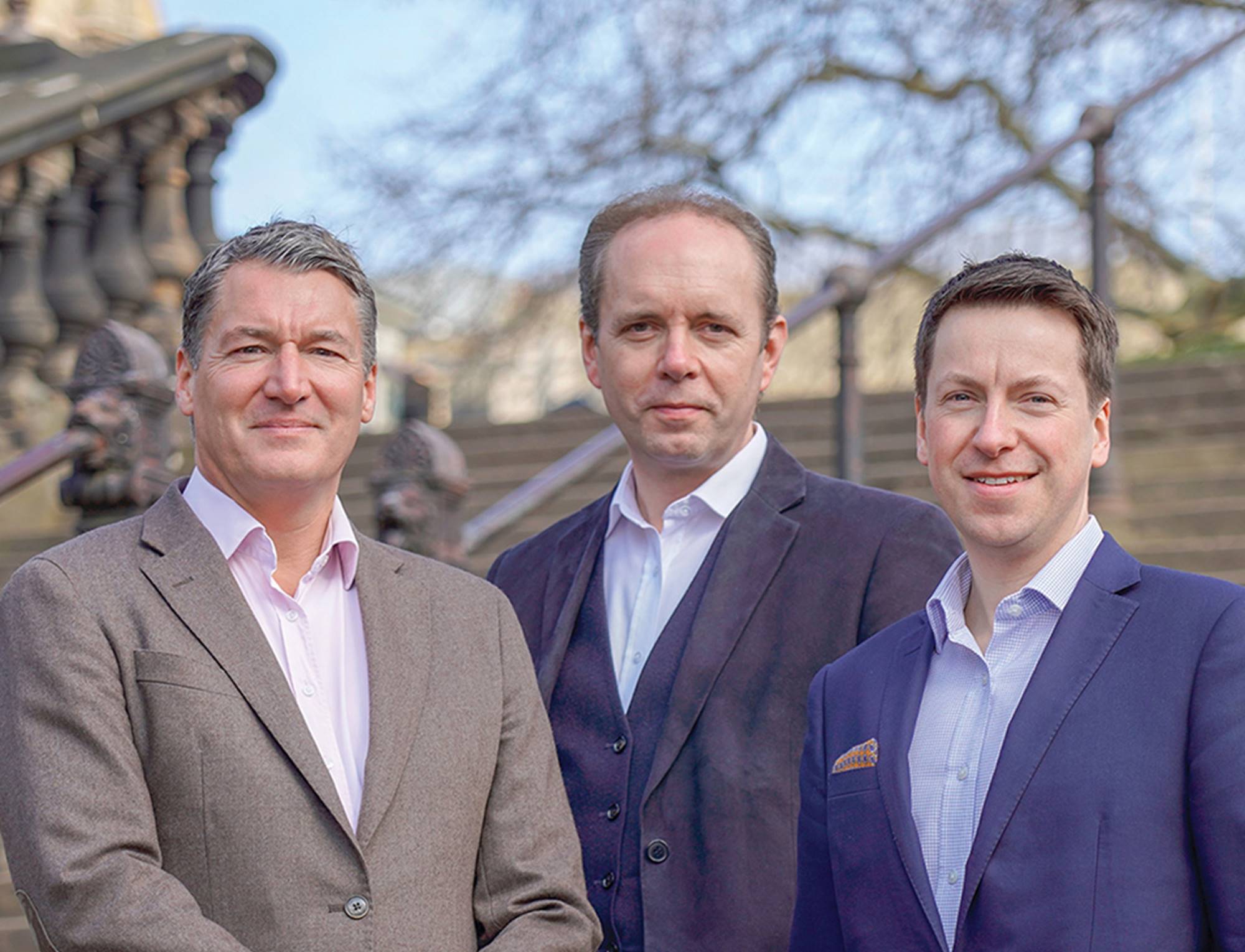Earlier this year we were thrilled to be awarded the Queen’s Award for Enterprise in International Trade 2019, in recognition of six years continual international business growth.
Image Left to Right: Mark Forrester, David Gardner, Chris McGuire
Now that we’ve had a chance to digest winning the award, and receive our trophy, we thought it time to reflect not only upon the last six years, but how our agency has grown from working within the Scottish hospitality market to now export over 60% of our business internationally.
We sat down with 80 DAYS’ Founder and Chairman, Mark Forrester, to reminisce over what we’ve learned during the last 18 years working exclusively in the international luxury hospitality sector.
Was an international market always the target market for 80 DAYS?
No, we had a moment of realisation when we reached around 10-15 customers, all within Scotland, and there were only 10 results on the first page of Google. We had more customers than could fit on the page for a search of ‘New Year Breaks Scotland’, a term we were targeting at the time. That’s when it hit me; we need to expand outside of Scotland.
We were the first digital agency in Europe to focus on the hospitality sector and that turned out to be a fantastic decision. We became known as subject matter experts and talked to hotels in their language. Whilst this model has been copied by others, it did mean at the time we were limiting our business by not moving into other verticals so we had to expand geographically.
At what point did international expansion become commercially viable?
Our first taste of exporting came 15 years ago when a UK customer who’s owner also had a hotel in the Cayman Islands, wanted us to work with them. Until then, we’d never thought about working internationally, it seemed improbable. When we found out that invoicing was fairly straightforward and that your services can be relatively easily adapted to work with an international audience, there was a bit of a realisation of ‘Wow, OK, we can do what we’re doing outside of the UK’. When we discovered that the red tape and the paperwork weren’t really an issue, that it wasn’t as painful as we thought, it was then a case of right how do we approach this?

Where did you look to expand first?
The most obvious place to expand was Europe, because it’s on our doorstep, so there were a couple of investigative trips to well known European trade shows to fact find and understand what the market might need. We found a suitable partner based in Germany, worked closely with them, and that’s when our first customers in the European Union started to come in. It expanded quite quickly from there. We looked at other markets and took a strategic approach, deciding that, while it might be logical to look at the US marketplace, it was already quite well served.
We started to position ourselves as a company who likes to do some of the more complex, multi-lingual, multi-cultural, work. We had a model that was effectively to keep everything within the Edinburgh headquarters, apart from customer service facing employees. We opened an office in Dubai as we thought that would be a strong market for us and that turned out to be the case; 30% of our business now is based in the UAE. Our local offices support our clients with the mantra ‘think local, act global‘. We’re replicating that model now with the opening of our European office in Marbella, Spain, toward the end of last year, to support our Southern European customers.
Have you had to adapt your product offering for an international market?
Fundamentally, our products and services aren’t different for any marketplace, it’s more the cultural aspects that are a little different. The high standard of service delivery is exactly the same. However, you learn different things in different marketplaces. For example, last week auditing a Saudi Arabian property we discovered that 86% of their traffic originates on mobile. So we then ask the question, what can we learn from that and how can we make that relevant to our customers in other parts of the world?
So that’s the benefit of what we do; the global learning. Not only are we working closely with hotels, we’re working in international markets where certain technologies may be more prevalent.
How did you navigate any language barriers?
One of the interesting things about building our product line for exporting, once we decided on the markets, was the realisation that, of course, language was one of the key elements to this working. We needed to be able to run digital marketing campaigns in different languages and we do that now in English, Spanish, French, German, Italian, Arabic, Russian and Polish. Most importantly, we knew we needed to be able to manage campaigns in native languages just as well as we could manage them in English, otherwise we’d never be a viable partner.
One of the interesting things that came out of that was how we use our language skills to help attract our UK clients attract foreign markets too. Taking London as an example, 100% of visitors to a London hotel are not English speakers, at least 50% would be from overseas. So by expanding internationally, we have strengthened our offering to UK hotels wanting to capitalise on international visitors.
Have you found that the challenges of hoteliers transcend borders?
The fundamentals of running a hotel in Europe and the Middle East, which is where our expertise focuses, are effectively the same; business and leisure markets, the balance between being busy during the week, leisure at the weekend, filling your shoulder nights on a Sunday, achieving a healthy balance of OTA vs. direct bookings etc. It’s the same issues, but certain regions have different balances. OTA’s are more prevalent in the Middle East. Agents are more prevalent in international resorts.
But the fundamentals are the same, you need rate parity in the UK, in Germany, in the Middle East. You need a good strategy to work productively with OTAs and use them to your advantage as opposed to just being a cost of sale. Revenue management and marketing need to be aligned.

What have been some of the challenges of working internationally?
I thought the challenges were going to be bureaucracy, red tape. But actually that’s not been the case. Actually, it’s fairly easy to go into a new region and get one or two new customers but the big challenge is actually being viewed as a local supplier. We overcame that by getting involved in the cultures and how you’re going to develop a business model that’s going to succeed, asking a lot of questions and listening. So in the UAE, for example, we found that the best thing we could do would be to have a very knowledgeable European running that office as that’s what the market seemed to be looking for, whereas in the Spanish marketplace they seem to be more appreciative of a local, native speaker.
The challenge, and where I think a lot of companies fail, is when they come in and try and ‘cookie-cutter’ their approach, what works for them, within the new markets they’re entering. It’s very important that you listen and adapt to the cultures of that market before you put your solution in place. Of course no-one tells you that, you have to work it out with experience.
When discussing internationalisation in 2019, it would be remiss of us not to mention the B word. With Brexit bringing uncertainty to the UK economy, how can hoteliers mitigate the impact through internationalisation?
I’m sure a lot of hoteliers wish that it wasn’t all over the news and I imagine there’s concerns over how European travellers will view the UK post-brexit, will there be expectations of barriers in terms of travel? I guess that could be partly mitigated by the potential for more UK staycation business. Hoteliers will also be very concerned about staffing shortages as many departments will be staffed by European Union members, as indeed is the case here at 80 DAYS. We have 30% European nationals employed within the agency and they’re absolutely vital to our business.
Hoteliers should be looking to effectively localise their content for the right marketplace, to ensure they’re running digital marketing campaigns that include that reach or audience, because often they’ll look to protect their brand in the UK, but aren’t as concerned about their brand representation internationally. So there certainly are actions that UK hoteliers can take to let the European marketplace know that they are open for business and ready to speak to them in their language! Look at China, look at Russia, the Brazilian marketplace and Indian marketplaces – massive markets. Take China, they speak a different language, adopt a different culture, they use a different Internet eco-system and different payment gateways; how are you going to attract that audience? And of course, remembering that not all Chinese travellers are based in China – many are living and studying abroad, have emigrated and that’s a massive marketplace. That is a big challenge for all hoteliers to look at and that’s the next frontier for us, an effective solution on how we reach Chinese travellers.
As an agency, have you taken any contingencies to handle Brexit?
Yes. It’s quite frightening for an agency that exports 60% of its services to have that level of uncertainty surrounding how easy it will be to trade with our European clients. Obviously we’ve opened an office in Spain, to help service our Southern European customers, but we absolutely would look to open a subsidiary in a European country if there were barriers to us trading and we would do that quite quickly. We would, out of necessity, move that revenue and that taxation income to another country in order to look after our customers. That’s the most important thing, looking after our customers and our employees.

What role has the agency’s company culture played in expansion?
Edinburgh is a multi-cultural city as we know, it’s got some of the best educational establishments in the UK, it’s very international, so we actually found that hiring non-UK employees wasn’t really a strategy, but more an eventuality as they were the best for the job. We’ve been a multi-cultural agency and we currently have 8 native language speakers within the business – that’s meant we’ve less apprehensions over going into new markets, new languages and new cultures.
Finally, what has winning a Queen’s Award for Enterprise in International Trade meant to the agency?
It means a lot for us. For a UK business it’s a great seal of approval and recognition for the work that this team has done over many years. It’s nice to be recognised as part of the UK’s economy, doing our bit abroad, pitching for and winning business against other international and local businesses on a global scale. In the same way it’s nice to be recognised for our culture through retaining our Investors In People Gold status, I think that’s a nice, authentic, stamp of approval.
Ironically I believe that winning the award will help us with winning more UK business. If we’re pitching with other UK businesses and they see that we’re very capable of managing complex projects, ten thousand miles away, in a different language and currency then we can manage their project that’s just a few hundred miles away. I think it’ll also help us in marketplaces like Asia, particularly where there’s an expat community, showcasing us as a credible business and partner agency.
WORK WITH 80 DAYS
Whether on our doorstep or thousands of miles away, we relish the opportunity to speak to like-minded, passionate, hoteliers and find creative solutions to the challenges they face daily. If you’d like to have a chat, please get in touch today.







